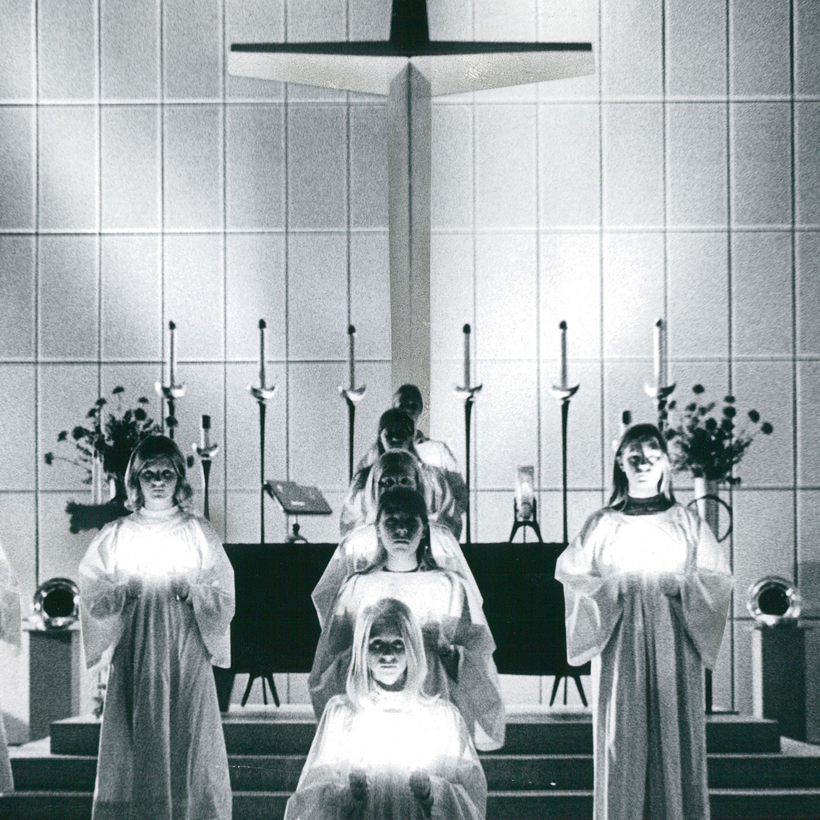Jonathan Franzen’s superbly rendered new social-historical novel of the 70s takes its title from a Christian youth group founded by its main character, Russ Hildebrandt, a frayed and earnest Protestant minister living in a beige Chicago suburb with his mercurial wife, Marion, and their four energetic children, three nearly grown.
Crossroads, a vaguely creepy encounter group, incarnates the cultural slippage of the era, blending psychotherapy and faith and prizing raw emotional candor over traditional doctrinal obedience.
It’s a period element of perfect relevance to Franzen’s themes of desire, fantasy, and conscience, but it’s also a useful narrative device, encouraging confrontations and confessions that might not otherwise occur. What might have been, in lesser hands, an excessively inward psychological novel locked up inside the heads of its protagonists gains a crucial measure of active drama.
The novel’s story is simple on the surface. A multi-polar domestic melodrama, it recalls—at times perhaps too closely—the work of Updike, Cheever, Yates, and other 20th-century master chroniclers of middle-class white unhappiness and yearning.
All in the Family
Russ, the sexually frustrated pastor whose old-style ministry is losing ground to that of a touchy-feely mustached rival, is drifting toward an affair with a young widow. Marion, his plump and dreamy spouse, who’s hiding a past of manic instability, is starting to wobble and act out like an asylum-bound Gena Rowlands, falling prey to old erotic voices.
Their teenage kids are wobbling, too. Becky, a popular, charismatic flirt, is poised between losing her virginity and ecstatically accepting the Lord—an existential coin flip. Perry, who’s on the spectrum and deals pot, is being tugged toward deeper criminal waters.
Finally, Clem, the eldest sibling, who’s off at college on a draft deferment, has turned against his own privilege, such as it is. The Hildebrandts aren’t rich by any means. They budget. They muddle along. Dad drives a Plymouth.

We’ve been here before in fiction, and not just once. I mentioned Updike. His spirit hangs heavy over Crossroads, from his boyish heartland Christian piety to his sense of the WASP poetics of adultery.
But Franzen outpaces the author of Rabbit, Run in at least one dimension: his empathetic grasp of the anarchic female id. His Marion is a character for the ages: horny, sassy, damaged, touched. Men have used her, not kindly, and she’s allowed it; she may have even sought it to some degree. Her instinctively decent husband is no match for her; we know this because we have access to her mind at a level she’s long denied him.
The carousel structure of Crossroads drives this home. Each chapter—some are quite long, amounting, almost, to stand-alone novellas—invites us into the secret thoughts and feelings of one family member. The results of their decisions overlap, ultimately weaving a common story, but each person remains irreducibly alone, a wholly encapsulated human soul.
Here’s Marion, quietly fighting off remorse:
Or maybe, although she definitely didn’t remember wanting to be pregnant, her feral intelligence had disastrously miscalculated without her being aware of it.… In Arizona, in the absence of any clear memory, she concluded that her pregnancy had been God’s plan for her: that His will manifested itself in the actions of His children, regardless of their reasons. This settled the question.
Crossroads is serious about religion. Its creator invites the reader to wrestle earnestly with the mysterious ways of the Creator, as his worried characters do also, testing their urges and whims against eternity. This steady preoccupation with sin and judgment feels refreshingly unfashionable, a rather startling and welcome antidote to an ironic, postmodern cultural phase. Franzen, quite wonderfully, I think, has decided that American life, so deeply silly and trivial at times, deserves to be weighed and measured by cosmic instruments.
The novel is dutiful about this task, using its nearly 50 years of hindsight to frame situations first handled by Cheever and Updike but which Franzen sets in a broader, more expansive frame, like events in a snow globe floating among the stars. It’s a supremely skillful book, ingenious and practiced in its execution, on point in its small, historical details, but it dares to be more than a finely crosshatched melodrama of domestic aches and agonies. It imagines a world that matters, and makes it so.
Walter Kirn is the author of the novel Up in the Air, which was adapted into a movie starring George Clooney. His latest book is Blood Will Out

